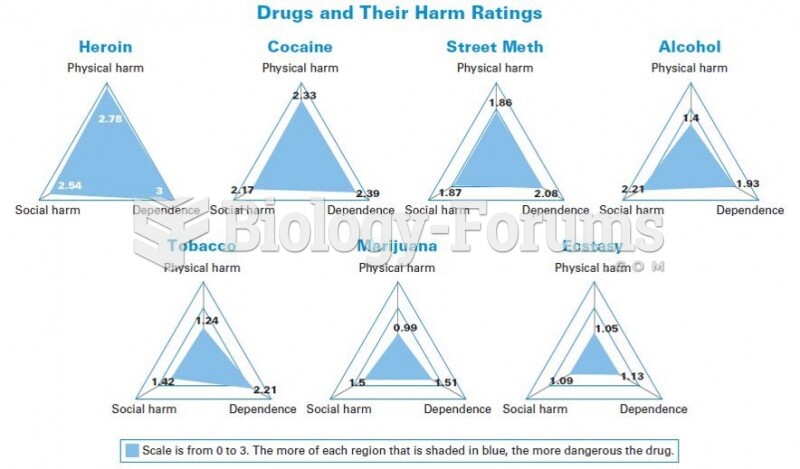|
|
|
Stevens-Johnson syndrome and Toxic Epidermal Necrolysis syndrome are life-threatening reactions that can result in death. Complications include permanent blindness, dry-eye syndrome, lung damage, photophobia, asthma, chronic obstructive pulmonary disease, permanent loss of nail beds, scarring of mucous membranes, arthritis, and chronic fatigue syndrome. Many patients' pores scar shut, causing them to retain heat.
The FDA recognizes 118 routes of administration.
A seasonal flu vaccine is the best way to reduce the chances you will get seasonal influenza and spread it to others.
Asthma cases in Americans are about 75% higher today than they were in 1980.
People about to have surgery must tell their health care providers about all supplements they take.







